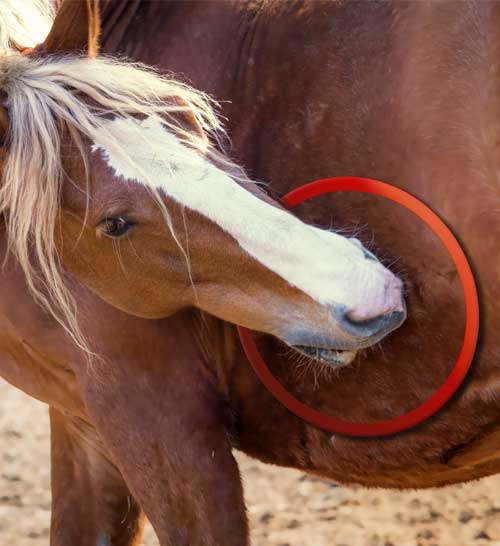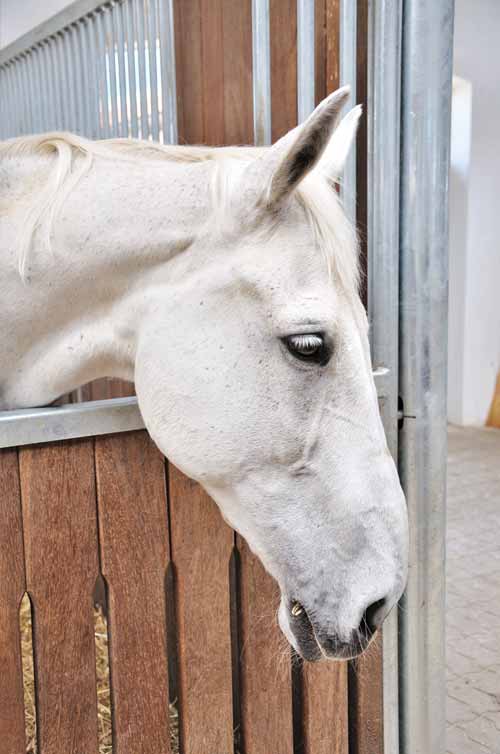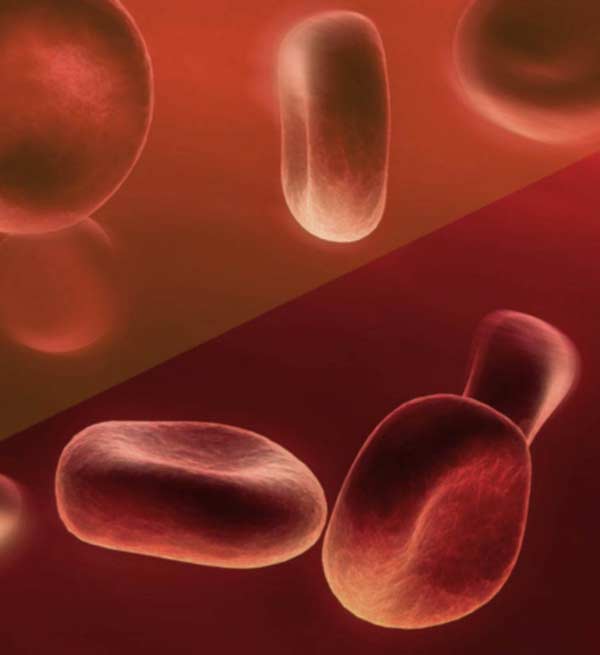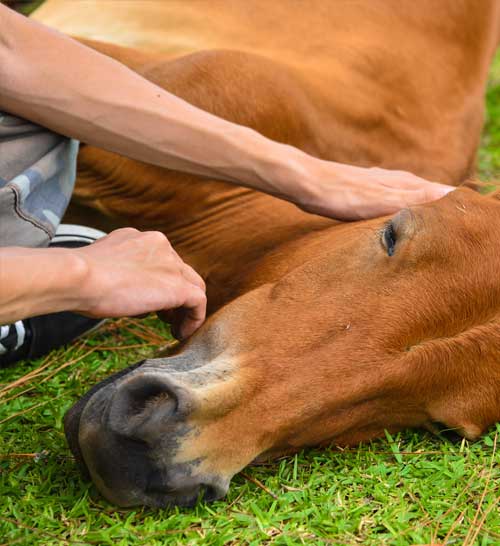Stomach (Gastric) Ulcers in Horses

A gastric ulcer is essentially a sore on the wall of the stomach, duodenum or even hind gut/large intestine. It is caused by excessive acid secretion by the stomach when there is either a.) no food in the stomach to absorb and dilute the acid, or b.) stimulated excess secretion of acid due to stressful conditions that the horse is under.
In the old days, it was thought that horses, being grazing vegetarians with a naturally higher pH of the digestive tract than meat eaters, could not biologically become afflicted with gastric ulcers, but modern studies have proven that false. In fact, the rate of ulcers in all animals, including dogs and cats as well as farm animals and even humans has risen dramatically in the last few decades. The rate of increase in gastric ulcers in all species directly correlates with the rise in environmental stresses that are known to cause high acidity in the living body. The declining quality of commercial foods and feeds is a large contributor, but poor water quality can do the same.
Ulcer statistics are lowest for horses turned out to pasture, and highest for racing horses stabled at race tracks. Show horses range from 40% to 60% depending upon the level of exertion, stabling environment, feed and water quality. The fact that there are even any ulcers in pastured, non-stressed horses verifies the fact that the only factor that has changed in this modern age is the quality and purity of the environment. Today, there are ever increasing toxins and residues from water contamination, air pollution, pesticides and herbicides in the food supply, as well as in the poor quality foodstuffs with lower nutritional quality and higher levels of contaminants than ever before.
Ulcers can come on quickly. It is known that in the right circumstances, just one dose of an NSAID like Bute® or Banamine® can trigger ulcers. NSAIDS are known to cause ulcers in humans and other animals as well. Aspirin is also an NSAID and can cause ulcers.
Our Untie® supplement is a safe and effective alternative to NSAIDs - even on race day.
Horses are designed to be grazing animals and continuously produce stomach acid. Starving them for a period of time will cause ulcers, and that is how they induce ulcers for study in clinics. Racing horses are too commonly starved for 12 hours before the race and are extra susceptible to ulcers. In addition, with exercise, the stomach muscles then contract and cause acid to dump into the stomach and intestine, which compounds the problem. So, with performance horses, the tradition of withholding food before a race, or event, so that they race, or run, "light” creates the near perfect conditions for ulcers to form.
For more information on diagnosis, and a list of symptoms, of ulcers, see our page on
Diagnosing Ulcers in Horses.
Recommendations:
Dosing 60㏄ (≈ ¼ cup) of Nutrient Buffer® just before bitting up for work or handling, or before trailering, can greatly help calm and soothe so that the horse is not dangerous to ride or handle. OTTB’s who have spent a lot of time at the race track under stressful conditions likely all have ulcers and might need this help all their off-track lives for old scarred ulcers still sensitive to acid dump at the gate. In fact, even 69% and 54% of polo horses examined in a recent study had glandular and squamous ulcers, respectively.
Dosing with just 60㏄ of Nutrient Buffer® helps right away. It can make the difference between a calm and controllable dressage mount or jumper and an out-of control runaway, or a high headed, screaming, short striding crazy and dangerous mount.
Our Biochemist also formulated a supplement called Sanity®, for horses in stressful circumstances like hauling and extended confining times when muscles are consistently bracing for long periods. Sanity® will not impact muscle coordination (like tranquilizers do) and it can be used for training and eventing.
Nutrient Buffer® is Safe for Continuous Daily Use at up to 6 — 60㏄ (≈ ¼ cup) — doses per day. Veterinarian approved.
You can purchase Nutrient Buffer®, Untie®, and Sanity®, and learn more about our whole line of supplements and feed, on our Equine Plus® website.




